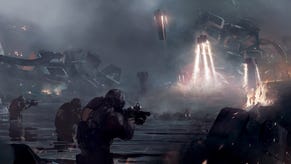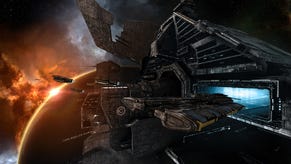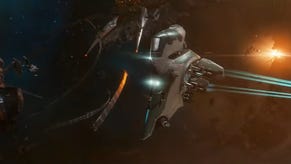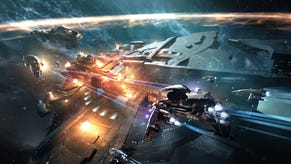10 Years of CCP
The Free Territory of the Americas.
Blast off
Hilmar Pétursson is a big man with a practical joke laugh and bad skin. The day before the party, he presents at CCP's in-construction offices on the wall of Reykjavik's harbour. Taking a group of international journalists through the history of CCP and onwards through the concept of what the team is trying to achieve with EVE - demagogic arm-waving, shining eyes and all - he outlines something everyone in the room understands, but few seem to get. What Hilmar and the rest of the CCP creatives are doing has essentially nothing to do with computer gaming at all, and trying to get that across to a bunch of games journalists may have been a little along the lines of, as we on the UK say, "pissing in the wind". He doesn't seem to care.
EVE Online is an open-ended space-based massively-multiplayer online role-playing game. It's probably the one true example of a "sandbox" MMO: players, flying around in spaceships and sitting in space stations, can basically do what they like. EVE has a complex economic model and encourages players to join corporations in which they compete against other corps for financial and military supremacy. At least, that's what it's supposed to be.
Up to this point, the company has done nothing else, although the acquisition of US-based developer White Wolf has enabled the company to start work on another MMO, one based on horror franchise World of Darkness. CCP was formed in Iceland in 1997 by three friends - Reynir Harðarson, Thorolfur Beck and Ívar Kristjánsson - all of whom still work on EVE. The company was originally funded by a space combat board game called Hæuttuspil ("Danger Game"). Pétursson joined as CTO in 2000, rising to CEO in 2004. A closed bank offering in 2000, and a further round of funding in 2002 put EVE into full production, but, classically, only a publishing deal with American outfit Simon and Schuster gave CCP the money to finish and release EVE on disc. Pétursson tells us that during the darker days of 2001, all the staff worked for three months without wages. No one quit.
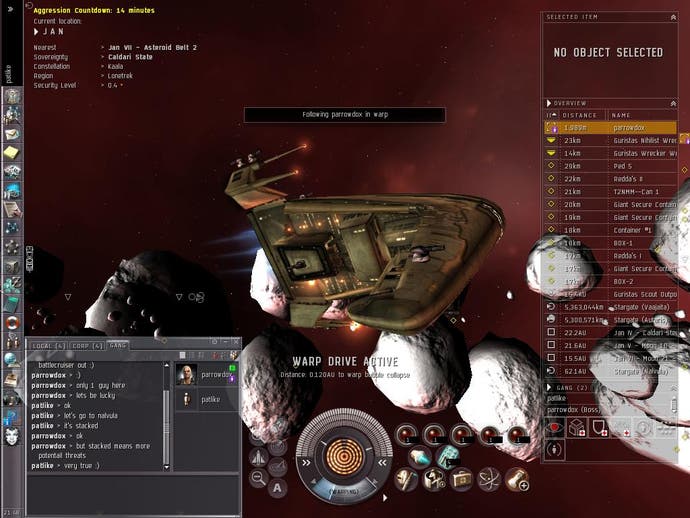
EVE cost USD $6 million to make. With Simon and Schuster getting out of games in 2003, CCP bought the distribution rights back and began offering the EVE client free to download in 2004, a situation that remains the same today.
"It took about half a year to negotiate with the management of Simon and Schuster to get the rights back," says Pétursson. "Then we turned the model around and really only started offering EVE as a digital download and stopped retail distribution, and started to market EVE more as an Internet application rather than a game. We've always seen this more as a service than a product. Not going into a store to buy a product, of course, makes sense now, but back then it was a breakthrough."
The forefront of the impossible
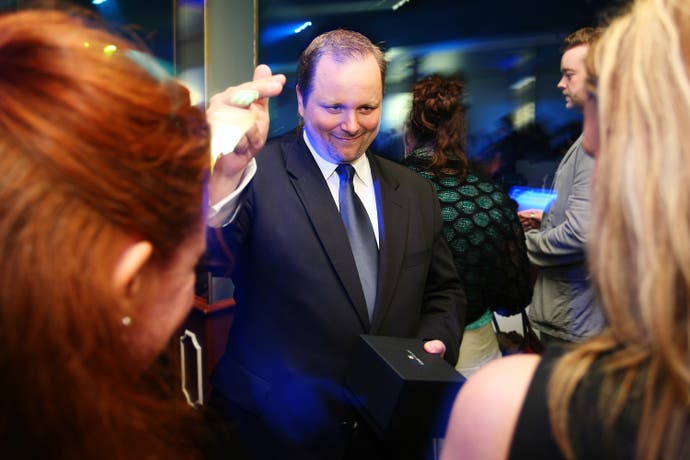
Innovation led to success. Over 200,000 people are currently playing EVE, he says, a reiteration from May's Nordic Game event. Exactly, there are 172,250 subscribers and 31,330 players on their month's free trial. Tenuously, more than 700 people actually work on EVE today, including 207 main staff and over 350 in-game volunteers. While it's a long stretch from WoW's eight million players ("Our goal was never to make the biggest game... although we wouldn't mind having eight million subscribers."), EVE, Pétursson says, is simply not the same product. In fact, the way he's talking, EVE isn't even the same medium.
For a start, the game's notoriously difficult and gives the player very little idea of how to play it. This is shown clearly in the retention of subscribers: about 50% cancel their subs in the first six months. Pétursson says this is a good thing, a polar opposite philosophy to practically ever other MMO creator in the world.
"We're often asked why we don't just fix it, why we don't make it easier to start," he says. "You could look at this as a great weakness. We lose more than half the people in the first six months, so why don't we make it easier and more accessible? It's important to note that this is the filter that creates the community. Messing about too much with it would really affect what keeps people playing the game... The people that have this mindset are the game's strongest asset."
More than 3 million people have tried EVE. A fraction remain. Why? Probably because most of them want to play a game. And EVE isn't a game. It's a revolution.
"We're at the forefront of the impossible," Pétursson tells a room full of largely blank faces. "We have been for the past four years."
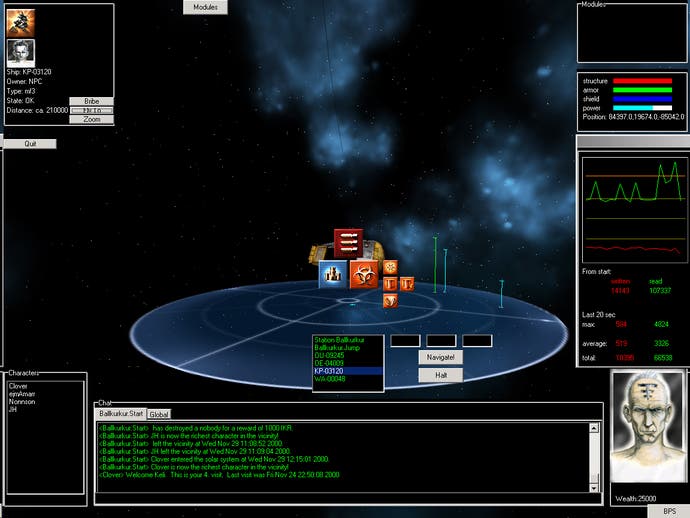
Questioning looks abound. Hilmar's just getting warmed up.
"We believe massively-multiplayer games have grown up from MUDs and are now entering a new phase, which we look much more on as virtually run societies," he says. "If you look back on the things that have happened in EVE in the past weeks and years, it doesn't really look as though the people that are part of the game-loop experience it as a game. It feels real to them, and they react to it, and they talk about it, and they have feelings about it as if it were real. And if you have 200,000 people being a part of something that they regard as real, then it is real. Even though it's virtual, it is real. There are real friendships, there are real feelings, there are real enemies. We think of EVE more as a society than a computer game."
You can hear a pin drop. It's going to be a bit tricky writing a "feature about EVE" from this, think 15 Mr Games Journalisms. Why isn't the funny man talking about spaceships?


